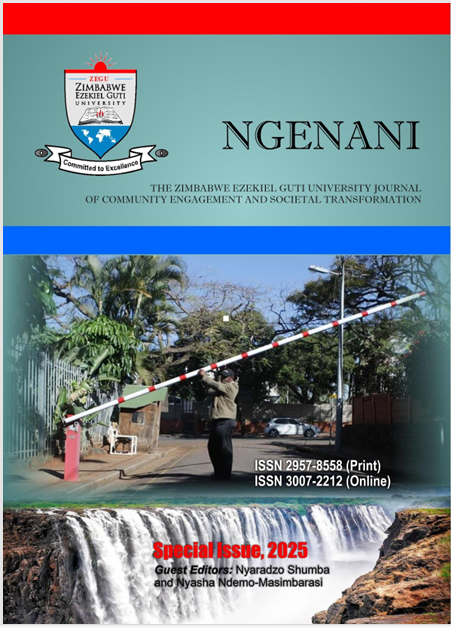Empowering Women with Disabilities through Sustainable Livelihoods in Zimbabwe
DOI:
https://doi.org/10.71458/n93z4k96Keywords:
empowerment, vocational training, microfinance, inclusive developmentAbstract
This article explores the empowerment of women with disabilities in Zimbabwe through sustainable livelihoods initiatives in both urban and rural settings. The study focuses on Mushagashe (Masvingo), Chiundura, rural areas around Gweru (Midlands) and Ruwa (Harare), examining how women with disabilities navigate intersecting challenges related to gender, disability and socio-economic marginalisation. Using a qualitative research approach, the study employs interviews, focus group discussions and document analysis to investigate the impact of grassroots initiatives and income-generating projects on the socio-economic well-being of women with disabilities. Key areas of analysis include access to vocational training, microfinance and entrepreneurship opportunities and the role of government policies and non-governmental organisations (NGOs) in facilitating or hindering economic inclusion. Findings indicate that while barriers such as limited capital and market access persist, participation in sustainable livelihoods projects has enabled some women to achieve financial independence, enhance their social status and advocate for their rights. The study concludes that targeted, inclusive livelihood programmes integrated within broader frameworks of capacity building and policy support, are essential for achieving meaningful socio-economic empowerment. The article provides recommendations for policy reforms and the scaling up of effective models to maximise sustainable impact.




